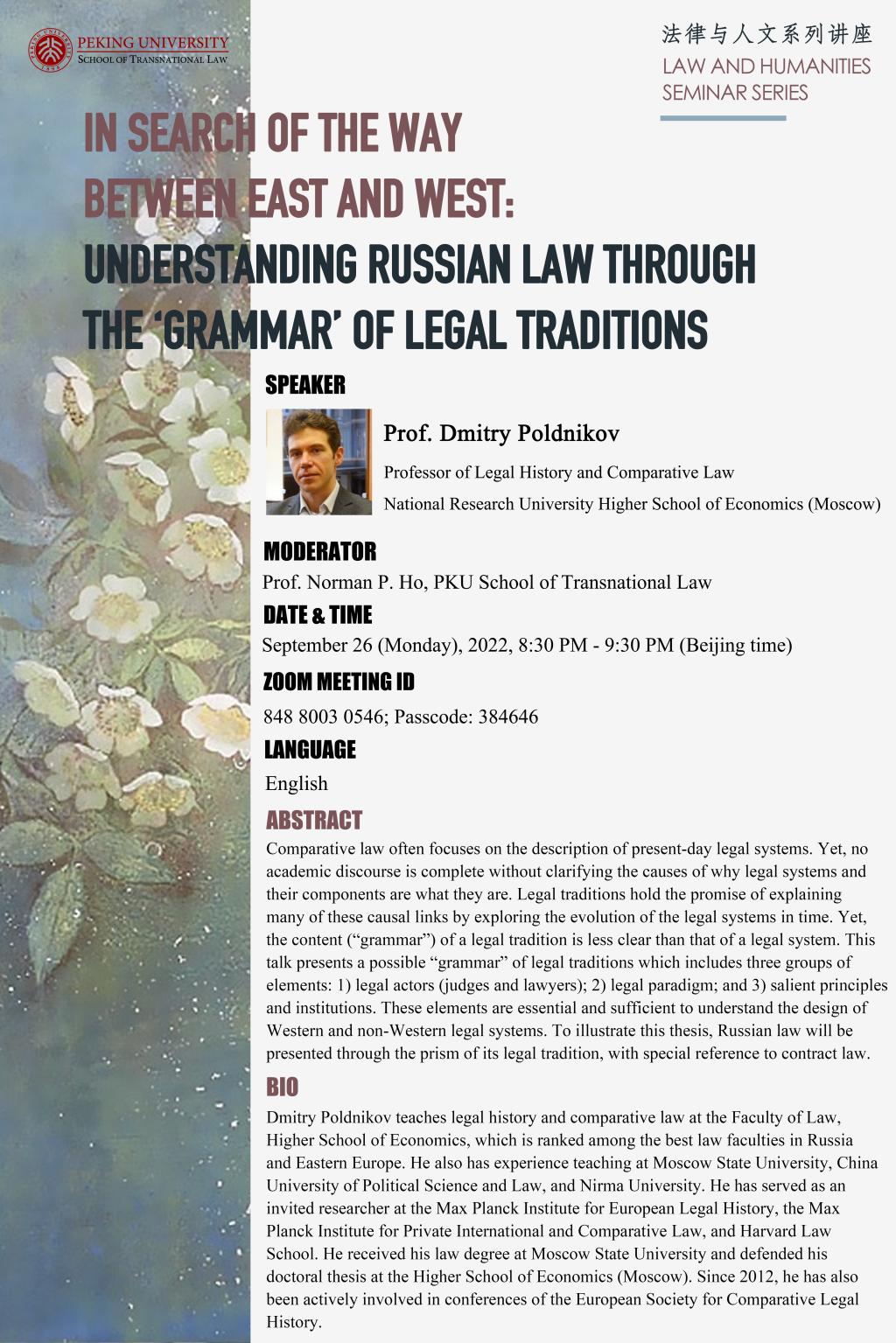Date&Time: September 26 (Monday), 2022, 8:30 PM - 9:30 PM (Beijing time)
Speaker: Prof. Dmitry Poldnikov, Professor of Legal History and Comparative Law, National Research University Higher School of Economics (Moscow)
Moderator: Prof. Norman P. Ho, Peking University School of Transnational Law
Venue: Online
Zoom Meeting ID and Passcode: 848 8003 0546 (Passcode: 384646)
Language: English
Lecture Summary: Comparative law often focuses on the description of present-day legal systems. Yet, no academic discourse is complete without clarifying the causes of why legal systems and their components are what they are. Legal traditions hold the promise of explaining many of these causal links by exploring the evolution of the legal systems in time. Yet, the content (“grammar”) of a legal tradition is less clear than that of a legal system. This talk presents a possible “grammar” of legal traditions which includes three groups of elements: 1) legal actors (judges and lawyers); 2) legal paradigm; and 3) salient principles and institutions. These elements are essential and sufficient to understand the design of Western and non-Western legal systems. To illustrate this thesis, Russian law will be presented through the prism of its legal tradition, with special reference to contract law.
Speaker Bio: Dmitry Poldnikov teaches legal history and comparative law at the Faculty of Law,Higher School of Economics, which is ranked among the best law faculties in Russia and Eastern Europe. He also has experience teaching at Moscow State University, China University of Political Science and Law, and Nirma University. He has served as an invited researcher at the Max Planck Institute for European Legal History, the Max Planck Institute for Private International and Comparative Law, and Harvard Law School. He received his law degree at Moscow State University and defended his doctoral thesis at the Higher School of Economics (Moscow). Since 2012, he has also been actively involved in conferences of the European Society for Comparative Legal History.
